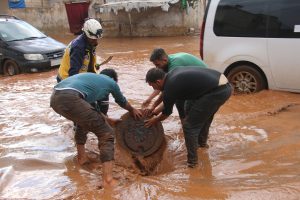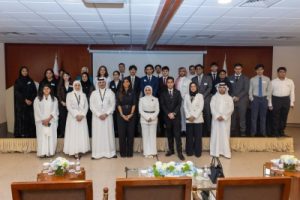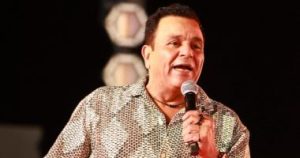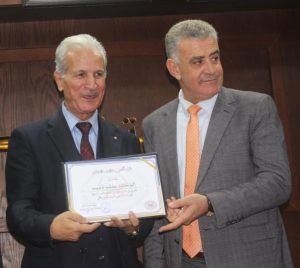Since the outbreak of the war in Sudan, international media rushed to reduce it to a simplified phrase: “A war between two generals”!
Thus, the war waged against the Sudanese people and their resources was portrayed as a power struggle between the commander of the national army and the leader of the Rapid Support Forces militia. But behind this superficial narrative lies a far graver reality: it is an existential war fought by the Sudanese people against a systematic destruction machine targeting their humanity, identity, culture, and infrastructure.
International media naturally seeks quick and marketable headlines. Portraying the conflict as a struggle between “Al-Burhan and Hemeti” is easier for Western readers than delving into a complex web of violations, war crimes, and humanitarian dimensions. However, this reduction sidelines the real victims: millions of Sudanese civilians paying the highest price.
On the ground, the war was not just a military confrontation between an army and a militia but a comprehensive genocide project, characterized notably by siege and starvation: militias imposed a suffocating blockade on cities, preventing food and medicine to subjugate and starve the population. Then they unleashed organized looting, emptied markets and warehouses, turning civilian property into war spoils, paralyzing the local economy.
The militia used rape and sexual violence as weapons of humiliation in crimes aimed at dismantling the social fabric. Then came the systematic destruction of infrastructure: hospitals, schools, electricity, and water facilities were all targeted to turn daily life into unbearable hell.
They also targeted cultural and intellectual heritage: universities and libraries were burned, cultural centers destroyed in an attempt to erase Sudan’s collective memory and national identity.
This is not just a “battle between two generals,” but a strategy to cleanse and tear apart the state and society’s fabric.
When crises are measured by the interests of the powerful, Sudan falls off the map; the Sudanese crisis clearly reveals that international attention is not measured by the scale of human suffering but by its connection to the geopolitical and economic interests of major powers.
But why is this dimension absent from international coverage?
The logic of sensationalism: media is attracted to stories centered on prominent individuals rather than complex crimes against humanity. The absence of field reporters and weak international journalistic presence in Sudan has made the narrative rely on secondary sources, causing the tragedy to lose its true voice. Political selectivity: some major powers find in the “two generals’ war” narrative a convenient way to avoid pressures for direct intervention or explicit condemnation; portraying the war as a personal conflict between military leaders conceals the militia’s use of the most heinous war methods against civilians. When hunger, rape, and systematic destruction become strategic tools of genocide, the media’s description becomes complicity through silence.
On August 28, 2025, the UNICEF Executive Director reported over 1,100 serious violations in the city of El Fasher (capital of North Darfur state) alone, including the killing and injury of 1,000 children, many while at home or in displaced persons camps, and 23 boys and girls subjected to rape, gang rape, or sexual abuse… not to mention what happened in other cities.
The militia did not stop at killing the living but targeted the memory of future generations by burning universities, libraries, and destroying centers of thought and culture. This was not random but an attempt to erase Sudan’s identity and wipe out its civilizational history.
When crises are measured by the interests of the powerful, Sudan falls off the map; the Sudanese crisis clearly reveals that international attention is not measured by the scale of human suffering but by its connection to the geopolitical and economic interests of major powers. Ukraine received wide support because Europe’s security was at stake, while Sudan remains outside the priority circle because its tragedy does not directly threaten those powers’ interests.
Sudanese people are not fighting to support a particular general but for the right to life, dignity, and national memory.
This international absence does not come without a price; it exacerbates Sudan’s tragedy on multiple levels. Weakening international pressure and portraying the war as a personal conflict reduces the urgency to hold militias accountable or provide urgent humanitarian aid, leading to:
- Entrenching impunity: the absence of accurate crime descriptions as genocide or crimes against humanity deepens the culture of immunity for perpetrators.
- Worsening humanitarian disaster: millions of displaced and refugees find themselves at closed doors, with no global attention matching the scale of the tragedy.
The responsibility of media and the international community today is not just to report news but to call things by their names. What is happening in Sudan is a genocide war against the people, not just a “war between two generals.”
Sudanese are not fighting to support a particular general but for the right to life, dignity, and national memory. Ignoring this truth places media and the international community in the category of complicity through silence and reproduces double standards that differentiate victims based on geographic and political interests.
Damage to electricity and water stations in dozens of locations has been reported, with significant losses to facilities and stoppage or reduction of refining, raising supply and logistics costs and causing chronic outages.
Economically, this war has had catastrophic consequences on the country and its people:
Sudan today is at the heart of a tragedy managed through starvation, rape, and destruction, while international media merely repeats the story of “the two generals’ conflict.” This narrative is not innocent but a tool of erasure hiding the fact that an entire people is facing an attempt to erase their existence.
Justice for Sudan begins with changing the discourse: from superficial simplification to an accurate description highlighting war crimes and genocide. Only then can global conscience move toward its responsibilities to stop the bloodshed, hold perpetrators accountable, and support the Sudanese people in reclaiming their right to life and dignity.













Recommended for you
Exhibition City Completes About 80% of Preparations for the Damascus International Fair Launch
Talib Al-Rifai Chronicles Kuwaiti Art Heritage in "Doukhi.. Tasaseem Al-Saba"
Unified Admission Applications Start Tuesday with 640 Students to be Accepted in Medicine
Egypt Post: We Have Over 10 Million Customers in Savings Accounts and Offer Daily, Monthly, and Annual Returns
His Highness Sheikh Isa bin Salman bin Hamad Al Khalifa Receives the United States Ambassador to the Kingdom of Bahrain
Al-Jaghbeer: The Industrial Sector Leads Economic Growth